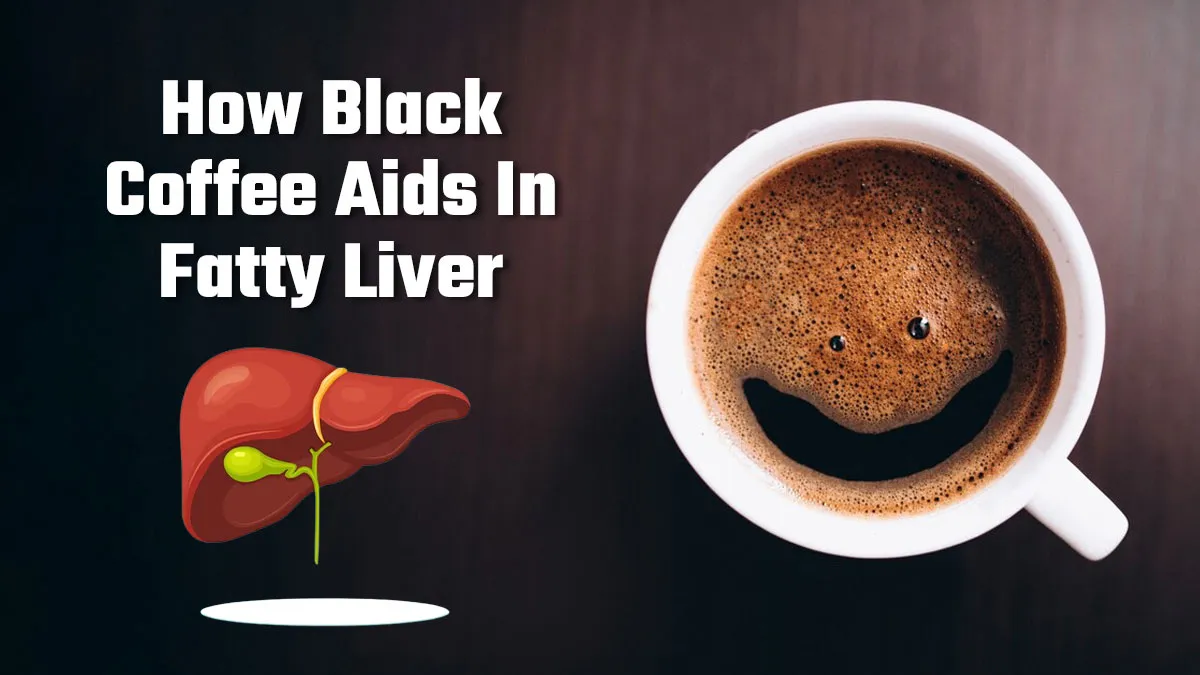
Fatty liver disease is a growing health concern worldwide, linked to obesity, poor diet, and sedentary lifestyles. As people search for natural ways to support liver health, black coffee has gained attention. Recent studies suggest that drinking black coffee without milk or sugar may help reduce liver fat and improve function.
Table of Content:-
Explaining the same, a leading gastroenterologist, highlights coffee’s unique ability to protect the liver. But how does it work? Read ahead to explore the science behind black coffee and fatty liver. Whether you’re a coffee lover or looking for liver-friendly habits, here is how this simple beverage could make a difference.
What Is Fatty Liver Disease?
Fatty liver occurs when excess fat builds up in liver cells. Over time, this can cause inflammation, scarring (cirrhosis), or liver failure. There are two types: alcoholic (from heavy drinking) and non-alcoholic (linked to metabolic issues). Dr Shubham Vatsya, Founder and Director, Gastro Liver Care, Delhi, explains, “Black coffee, without milk and sugar, is the only substance that can dissolve fat from liver. It acts like plasma for the liver.” He adds, “Multiple studies show drinking 3-4 cups of plain black coffee daily may dissolve liver fat. Coffee is a very, very good protector for your liver.”
The key lies in coffee’s natural compounds, like chlorogenic acids and caffeine. These boost fat metabolism, reduce inflammation, and block fat storage in the liver. A study found that drinking 2–3 cups of coffee daily was linked to lower liver stiffness in patients with non-alcoholic fatty liver disease. This suggests that regular coffee consumption may help prevent liver fibrosis, a serious complication of fatty liver disease.
How Much Black Coffee Should You Drink?

Dr Vatsya recommends 2–4 cups daily for liver benefits. However, moderation matters. Too much caffeine can cause anxiety or sleep issues. Follow these tips:
- Skip Milk and Sugar: Additives negate coffee’s fat-fighting effects.
- Space It Out: Avoid drinking all cups at once.
- Consult a Doctor: Those with heart issues or caffeine sensitivity should seek advice.
Other Benefits of Black Coffee for the Liver
- Antioxidant Power: Fights oxidative stress, a key driver of liver damage.
- Reduces Inflammation: Compounds in coffee lower inflammatory markers.
- Lowers Liver Enzymes: High enzymes signal liver stress; coffee helps normalise them.
- Lowers Cancer Risk: Studies link coffee to reduced risk of liver cancer.
While black coffee shows promise, it’s not a cure-all. Pair it with a balanced diet, exercise, and weight management. Avoid alcohol and processed foods to protect your liver further.
Conclusion
Black coffee is more than just a morning pick-me-up. Its natural compounds offer a range of benefits for liver health, making it a powerful ally in fighting fatty liver disease and other liver-related conditions. Dr Shubham Vatsya’s insights and scientific research highlight black coffee’s potential to combat fatty liver. Drinking 2–4 cups daily without milk or sugar may reduce fat, inflammation, and disease risk. However, balance is key. Always combine coffee with healthy habits and consult a doctor for personalised advice. For liver health, this simple habit could be a game-changer.
Also watch this video
How we keep this article up to date:
We work with experts and keep a close eye on the latest in health and wellness. Whenever there is a new research or helpful information, we update our articles with accurate and useful advice.
Current Version